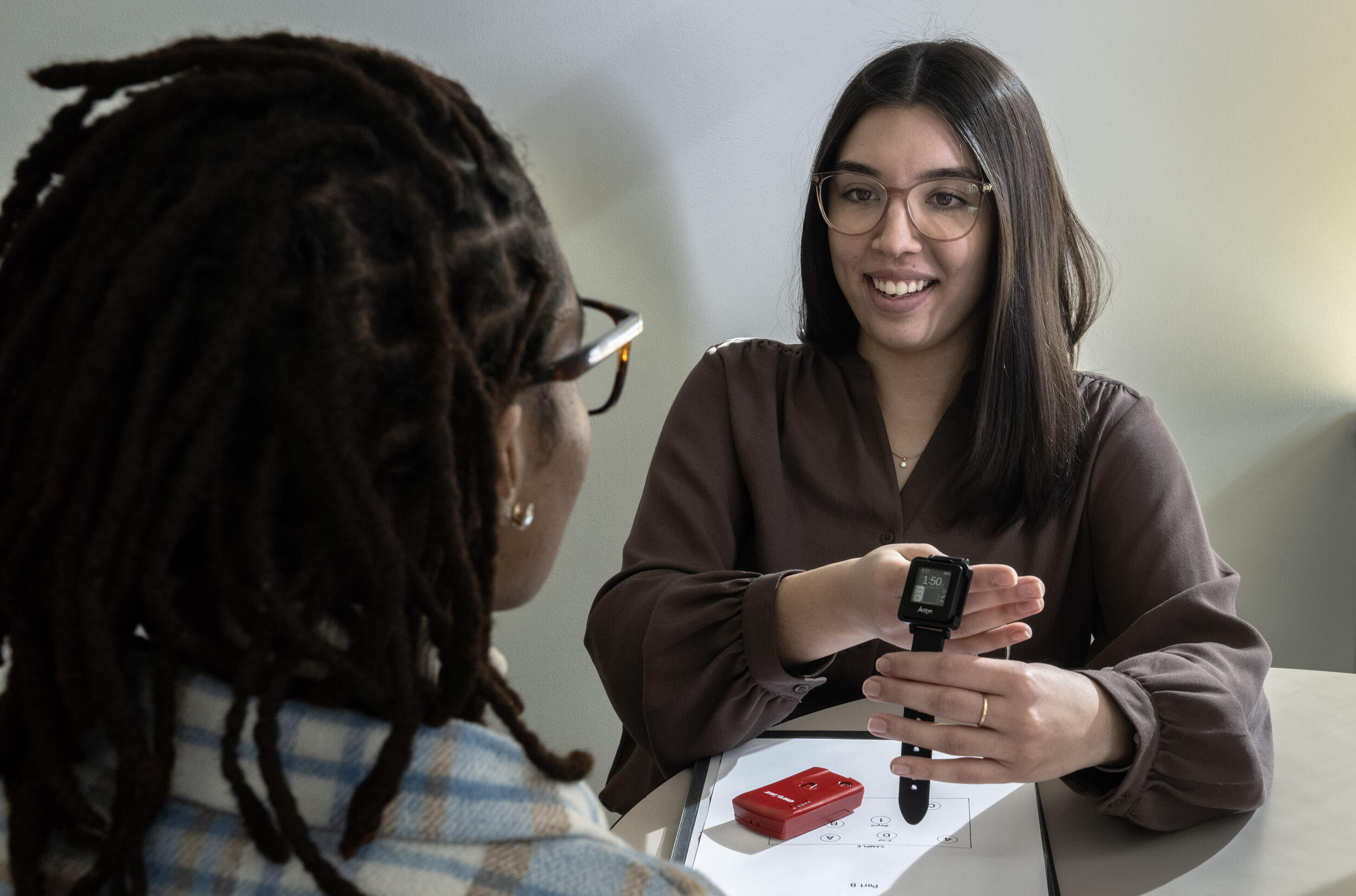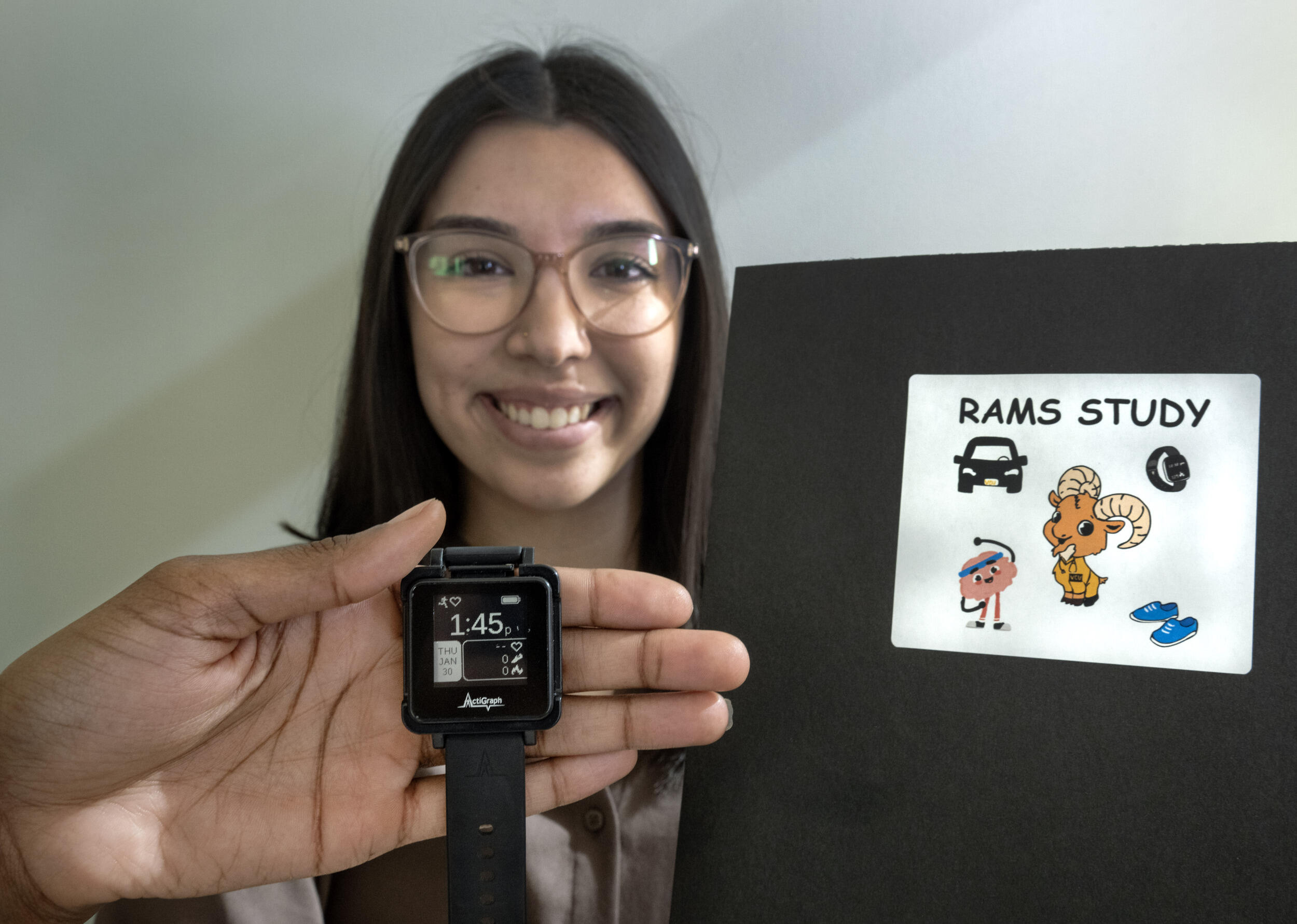
cations)
Feb. 7, 2025
How I found my research: Hannah Khan studies the connection between brain health and movement
Share this story
How I found my research is an occasional series featuring VCU students sharing their journeys as researchers.
Hannah Khan discovered her interest in research when she was an undergraduate in the Virginia Commonwealth University School of Nursing. Khan, who is from Leesburg, Virginia, ultimately graduated from VCU with a bachelor’s degree in nursing and became a registered nurse. She worked as a pediatric ICU nurse and then returned to VCU, where she is currently pursuing a Ph.D. in biobehavioral research in the School of Nursing.
Khan today serves as a research coordinator for the RAMS Study at the School of Nursing. She shared with VCU News how she got involved in research and the work that is inspiring her today.
In two sentences, tell us the focus of your research ... and why it is important/impactful for all of us.
The RAMS Study Team is investigating the connection between brain health and movement, aiming to develop measures of mobility that can detect early signs of cognitive decline in older adults. This research is vital for improving health outcomes and emphasizes community engagement to include historically underserved populations in research.
What inspired you to pursue this line of research?
My research journey began during my undergraduate studies when I received an email about a research fellowship. Although I knew little about what the program would entail, I applied. To my surprise, I was accepted, and this experience turned out to be transformative, opening my eyes to numerous opportunities and revealing that I love the research process.
Through my fellowship project with Lana Sargent, Ph.D., an associate professor and the associate dean for practice and community engagement at the School of Nursing, I was introduced to the concept of research literacy. I became inspired to further explore how people understand research, the motivations that influence participation and ways to improve the research experience for study participants. This newfound passion led me to pursue my Ph.D. with the goal of investigating these themes further, ultimately making a lasting impact in the community through research.
Tell us about a surprise in your research journey.
I was surprised by how an application to a research fellowship program changed the direction of my life. Initially, I never envisioned pursuing further education after my bachelor’s degree, nor did I anticipate developing an interest in research. However, once I was in the fellowship program, I found myself immersed in a world of possibilities that I had previously overlooked.

Tell us about an obstacle or challenge you had to overcome in your work.
Initially, I struggled to balance school, work and my social life, as the competing demands often felt overwhelming. I noticed that I had little room for self-care, which left me feeling burned-out. However, over time, I learned what works best for me. I prioritized organization and time management to find a more manageable balance. I also recognized that it was essential to set boundaries and be intentional about scheduling time for myself. By doing so, I improved my well-being, which ultimately allows me to be more engaged in my life.
Is there a memorable partnership or lesson you've embraced along the way?
During my research fellowship, I met Dr. Sargent, who has been an incredible mentor to me. Her guidance has been invaluable, offering not only her expertise, but also her insight into the importance of patience, perspective and dedication.
What do you find fulfilling about the research process?
What I find most fulfilling about working in research is the opportunity for meaningful community engagement. The RAMS Study addresses the barriers that often prevent people from participating in research by working with the Richmond community. By bringing research directly to underserved populations, we help ensure their voices and experiences contribute to research. Knowing that our work promotes inclusivity and representation in research is very rewarding.
What advice would you offer undergrads to kick-start their own research journeys?
My advice is to take full advantage of the endless opportunities at VCU. There are so many people here who truly want you to succeed. Don’t be afraid to take risks and step into new experiences – you never know where an opportunity might lead!
Subscribe to VCU News
Subscribe to VCU News at newsletter.vcu.edu and receive a selection of stories, videos, photos, news clips and event listings in your inbox.










